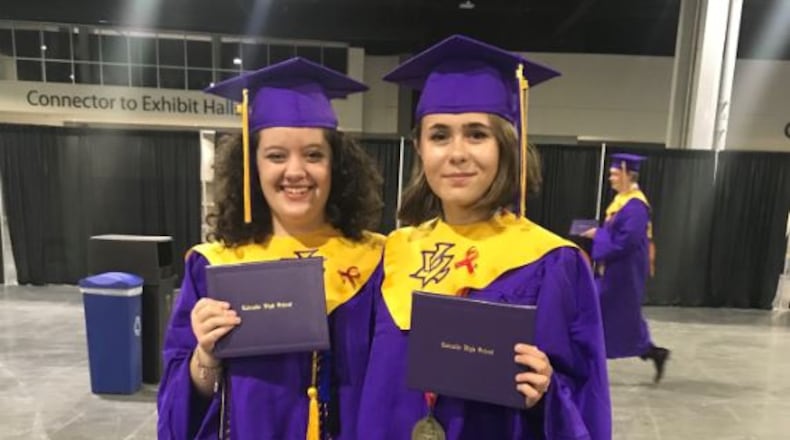Adrina Bradley never thought about boosting her chances at finishing atop her class when she began taking classes at Georgia State University Perimeter College’s Clarkston campus. She wanted to earn college credits.
“I wanted free college,” chuckled Bradley, 18, by phone Wednesday, a day after graduating from DeKalb County’s Lakeside High School. “College right now is so expensive, and it’s a luxury outside of my range. I was also able to work and save money for college.”
Her college classes received more weight in class ranking than regular high school classes, which pushed her to salutatorian. At its core, she said, her final ranking was the product of a flawed system that should be changed. That should not affect her, though, or others opting for dual-enrollment.
“I was a straight-A student at Lakeside. It wasn’t like (with dual-enrollment) I was … taking an easy way out to get ahead. I think there are issues with the system, but it can’t impinge on a student’s rights. I have access to high school amenities. You can’t separate that from opportunities at graduation like being valedictorian or salutatorian.
“Where you draw the line is difficult.”
Bradley was salutatorian for Lakeside's class of 2018, and made a speech at commencement, though she had not attended classes there during her last two years. The class valedictorian never attended a class at the school.
Having dual-enrollment students fill the class's top positions is becoming more common as students earn college credit while still in high school through the state's "Move On When Ready" program. Law was amended last year to include dual-enrollment students who had been left out of the running for valedictorian or salutatorian due to technicalities, including the amount of time spent in high school classrooms.
DeKalb school district officials said last week that the valedictorian and salutatorian were eligible for the honors, having followed state rules that stipulate a student must be enrolled at the school prior to their junior year.
Todd Harris, Bradley’s stepfather, said dual enrollment allowed Bradley to make the most out of the time spent in high school.
He agreed, though, that Move On When Ready is flawed. It seemed students could easily take college classes just to boost their class status.
“Back in the day, the valedictorian used to mean the best student,” he said. “Now, it means something else. You can game the system … The thing that concerns me is that if there’s … a movement … to make your child valedictorian.
“Adrina didn’t do that.”
Bradley said she is headed to the University of Georgia in the fall, to study either international relations or education administration. Dual-enrollment, she said, allowed her to take internships and gain more experience than she would have in a traditional classroom environment.
“It gave me so much time to do what I’m excited about,” Bradley said of the dual-enrollment schedule. “I wish more students would do it.”
About the Author
Keep Reading
The Latest
Featured



